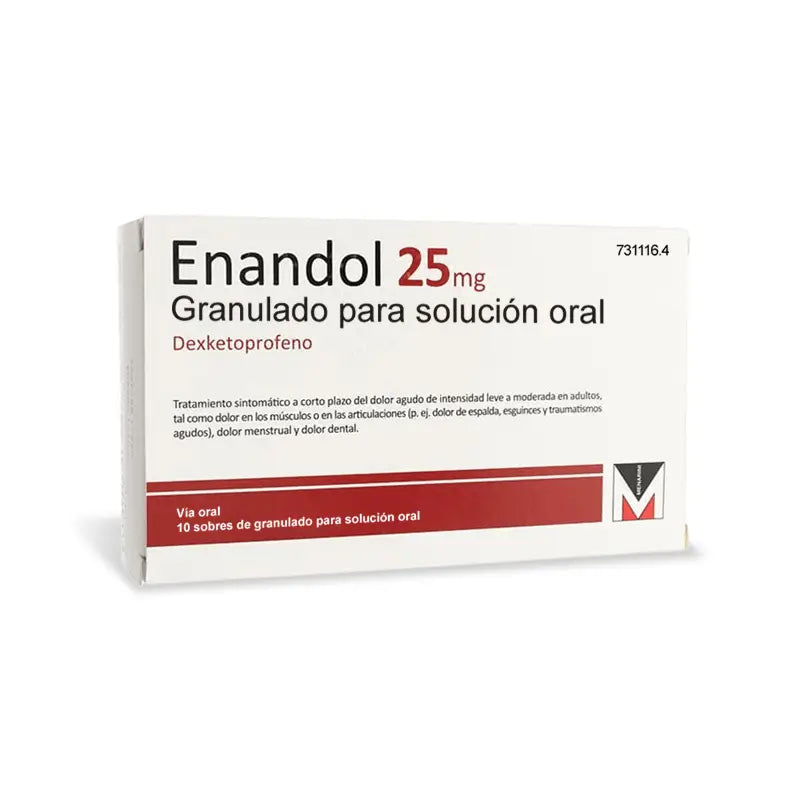What is Enandol 25 mg granulated and what is it used for?
It is a medicine in the form of granulated sachets used for the symptomatic treatment of musculoskeletal pain, headaches, menstruation and dental pain, among others.
It comes in a pack of 10 sachets.


It is a medicine in the form of granulated sachets used for the symptomatic treatment of musculoskeletal pain, headaches, menstruation and dental pain, among others.
It comes in a pack of 10 sachets.
Adults and adolescents over 18 years of age
- The active substance is dexketoprofen (as dexketoprofen trometamol). Each sachet contains 25 mg dexketoprofen.
- Excipients: ammonium glycyrrhizate, neohesperidin dihydrochalcone, quinoline yellow (E-104), lemon flavouring, sucrose (see section 2, Enandol contains sucrose).
Open the sachet and pour into a glass of water, dissolve and once reconstituted take immediately.
The dose should be 25 mg every 8 hours, the maximum possible dose of dexketoprofen being 75 mg per day.
In patients with hepatic impairment, the daily dose is 50 mg.
In patients with mild renal insufficiency, the daily dose is 50 mg. On the other hand, if renal insufficiency is severe, the administration of dexketoprofen is not recommended.
Its use is contraindicated in pregnancy and lactation. Likewise, in preconception, it should not be used either.
If you suffer from any type of joint or muscle pain, headache or menstrual pain, take 1 or several sachets of Enadol a day. Remember that you should use this medicine only occasionally and only when there are really acute symptoms.
To facilitate absorption, it can be taken on an empty stomach 15 minutes before meals, diluted in a glass of water.
Read the package leaflet included with this medicine carefully. If you have any questions, you can consult our team of expert pharmacists.
Side effects
Enandol Envelopes may cause side effects, as with all medicines. In this case, the following occur quite frequently: vomiting, dyspepsia, abdominal pain. In addition, although not as frequent, unwanted side effects of the medication may occur, such as oedema, anorexia, paraesthesia, syncope, hot flushes, bronchospasm, pancreatitis, tachycardia, hypotension, gastritis and dry mouth, among others.
Do not use Enandol Envelopes:
- In children under 18 years of age.
- In patients who have had asthma attacks, bronchospasm or acute rhinitis.
- When taking medicines such as NSAIDs or salicylic acid derivatives.
- In patients who have suffered gastrointestinal bleeding due to the use of NSAIDs, or who have active ulcers, patients with chronic dyspepsia.
- In patients with Crohn's disease or ulcerative colitis, patients with severe cardiac, renal or hepatic insufficiency.